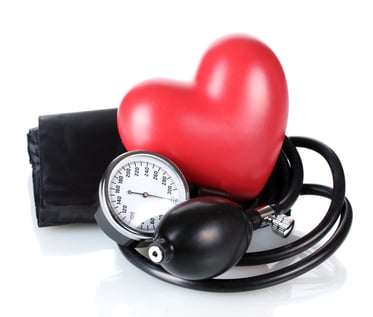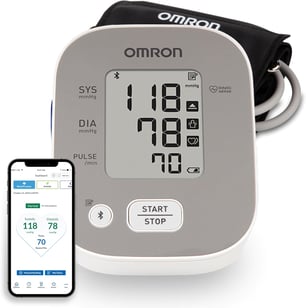Lets Talk About Blood Pressure.
Knowledge is power. Learn how knowing your blood pressure can keep you safe.
5/20/20254 min read


Have you ever heard the sound of a heartbeat? Lub-dub, lub-dub, lub-dub. Those sounds you hear are the valves in your heart contracting to pump your blood out to the body. How strongly the heart has to contract is dependent on the thickness of your blood. When you have high blood pressure, the heart has to contract and work much harder, which over time can lead to heart complications and even heart failure. When you have low blood pressure, the heart will also contract harder, and more frequently. It does this to compensate in order to maintain adequate blood flow to your body. Having high or low blood pressure can directly affect how your body feels physically as well. This can pose problems with your physical capabilities in your home if not properly managed.
During almost every visit with my patient's I am having discussions with them about their blood pressure. Before every visit I always check vitals to be certain everything looks okay before we perform any physical activities. In this post, I want to educate you on some key points I discuss with my patient's about how their blood pressure can directly affect their safety in the home.
*** Please keep in mind, this is general information with regards to blood pressure, and each individual should follow instructions from their primary care physician with regards to any physical activities they perform. ***
During almost every visit with every patient, I discuss position changes. Sudden changes in your body's position can directly alter your blood pressure. This is most notable if you have been sitting or lying for an extended period of time, and then you stand up. When you first stand, your blood pressure can temporarily drop. This is called orthostatic hypotension. When this occurs, you can feel dizzy or lightheaded, which could lead to a fall. It is very important that any time you first get up, you stand momentarily and get your bearings. Make sure you feel okay before you start taking any steps. If you feel a little light-headed or dizzy, it's best to sit back down for a moment and let your body regroup before you stand up and try again. Always give yourself time to allow for these slow transitions. For example, if you need to go to the bathroom, as soon as that urge comes on, stand up and slowly work your way to the bathroom. Too often I hear about patient's waiting until that last moment, and then they feel the need to get up and rush to the bathroom to avoid an accident. These are the situations that then result in falls that could have been prevented. If someone knocks on your door, take your time to get there. If it is important, they will wait. Nothing is worth you ending up on the ground with a fractured bone or a head injury.
While exercising can be helpful for people who struggle with high blood pressure, it is important to be safe with our exercise. It's best to stick with low to moderate intensity exercises, like walking, riding a bicycle, or swimming. It's also important to avoid prolonged strenuous activity, like plank holding or heavy weightlifting. These things can increase too much stress to the heart. When I exercise with my patient's we focus strongly on our breathing. Holding your breath or straining to perform an exercise can cause too much workload for the heart. Some ways to avoid this are to focus on good deep breaths in through the nose and out through the mouth during exercise. Our body naturally tries to bear down and hold our breath when we are doing something strenuous. Instead of holding your breath while you lift something or tighten a muscle, take a deep breath in and then breath out while you lift or tighten. This is much better for your heart. You can also count your exercise repetitions out loud, which forces you to breath adequately during your workout.
If you are someone who struggles with blood pressure issues, make sure you are following an adequate diet, staying hydrated, and taking any medications properly as prescribed. It can be very helpful to have a blood pressure monitor of your own at home. Not only can it give you piece of mind, but it can be very helpful for your doctor if you keep a regular log of your blood pressure readings. Sometimes people are prescribed medications for blood pressure complications, but with lifestyle modifications they get to a point where they no longer need to be on them. For example, someone with high blood pressure may be started on medications to help lower their blood pressure. They may start dieting and exercising and get to a point where their blood pressure is better regulated. If they keep taking medication to lower their blood pressure, when it is no longer needed, they may end up having a blood pressure every day that is now too low. This can lead to some of the side effects we discussed above, so keeping an eye on that blood pressure is very important. It is also crucial that you schedule and attend all your regular medical check-ups. Your doctor will let you know where they would like your blood pressure numbers to be, as again, these numbers can vary from person to person. So be sure to keep all your appointments and have good communication with your family physician.
https://amzn.to/4k7AxkW (Amazon)


